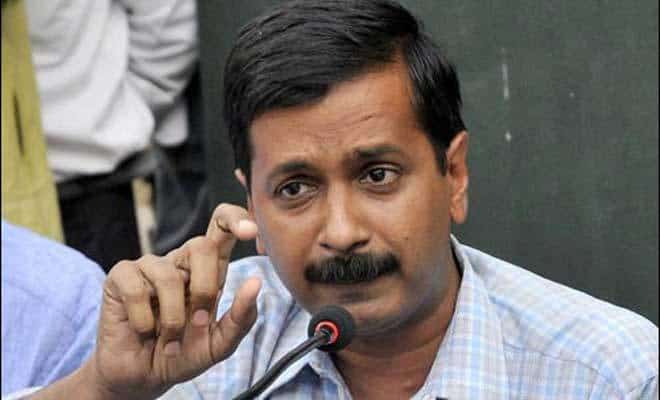New Delhi: Delhi Chief Minister Arvind Kejriwal today wrote to Union minister Hardeep Singh Puri, seeking a review of the hike in metro fares and reiterated his offer to partially bear the cost of the proposed “claw back”.
Kejriwal said besides causing an increase in the pollution levels in Delhi, “high metro tariffs” also directly affect the travel pattern of the economically weaker sections of the society.
In the letter to the minister of state for housing and urban affairs, the chief minister said there has been a decline of about 10.5 per cent in the number of passenger trips undertaken during Nov. 2017, compared to Nov. last year.
“Past data as well as the claims made by the DMRC indicate that passenger trips grow by about 8.5-9 per cent every year,” Kejriwal said.
“Even if we assume a conservative growth rate of 8 per cent per annum, it would be evident that not only was this growth of 8 per cent missed, there was also a decline of 10.5 per cent as mentioned above, implying a total loss of 18.5 per cent in passenger trips,” he said.
It implies that there was a shift of 15.3 lakh passenger trip from the Delhi Metro in November 2017 alone, which suggests these trips were undertaken by other modes that are less friendly to the environment, he said in letter to Puri.
He said for a full year, these trips would be nearly two crore, and evidently, this would add significantly to air pollution at a time when the air quality is severely stressed.
“In view of the sharp decline in ridership after the recent tariff hike, it seems necessary in public interest to review this hike and claw back the fares to their September level,” Kejriwal said.
Even then, the commuters would pay 50 per cent more than the tariffs payable in May 2017, but anything above that would be “injurious” to the commuters and to the public interest, he also said.
“I reiterate our earlier offer to bear half the losses arising out of the proposed rollback,” Kejriwal added.
The Delhi Metro lost over three lakh commuters a day after a steep fare hike came into effect on October 10, an RTI query revealed last month.
Later, Puri claimed the dip in the ridership cannot be linked to the fare hike effected in October, which, it said, was necessary for maintaining “efficiency”.
The fare hike led to a rise of around Rs 10 for nearly every distance slab. This came barely five months after the previous hike of up to 100 per cent.
The revised fare structure was: up to 2 km – Rs 10, 2 to 5 km – Rs 20, 5 to 12 km – Rs 30, 12 to 21 km – Rs 40, 21 to 32 km – Rs 50, and for journeys beyond 32 km – Rs 60.
PTI

